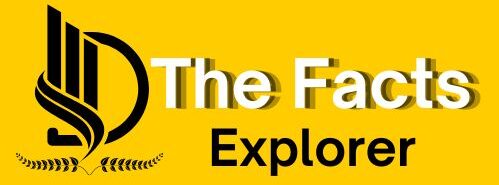Exploring the Wonders of Savant Syndrome

Savant syndrome, an extraordinary and rare cognitive phenomenon, is a condition where individuals exhibit remarkable abilities in specific domains, juxtaposed against cognitive or developmental deficits in other areas. Discovered in the late 19th century, this enigmatic condition has captivated the scientific community with its profound implications for understanding the intricacies of the human mind.
Introduction
Savant syndrome stands as a testament to the boundless complexity of the human brain. Defined by the coexistence of exceptional abilities and cognitive challenges, it has become a focal point for researchers delving into the nuances of neurodiversity. This condition shatters conventional perceptions of intelligence, offering a unique lens through which to explore the untapped potential residing within the cerebral landscape.
Definition
At its core, savant syndrome encompasses a spectrum of conditions where individuals, often diagnosed with autism spectrum disorder or other developmental disorders, display astonishing talents. These talents may manifest in diverse areas such as mathematics, music, art, or memory recall. Despite facing challenges in communication and social interaction, savants showcase unparalleled prowess in their specialized domains.
The paradoxical nature of savant abilities raises questions about the intricate interplay between neural structures and cognitive functions. Researchers grapple with defining the boundaries of savantism, recognizing that each case is a mosaic of unique cognitive gifts and challenges. The very definition of savant syndrome, therefore, continues to evolve as our understanding of neurodiversity deepens.
Discovery
The discovery of savant syndrome traces back to the late 1800’s when Dr. John Langdon Down, renowned for identifying Down syndrome, first documented cases of individuals with exceptional talents amidst intellectual disabilities. Over the ensuing decades, pioneers in psychology and neurology, including Sir Alexander Crichton and Dr. J. McConachie, contributed to the understanding of this intriguing condition.
One of the most famous cases in modern history is that of Kim Peek, the real-life inspiration for the film “Rain Man.” Peek’s extraordinary memory and computational abilities brought savant syndrome into the spotlight. Since then, scientific interest has surged, with researchers employing advanced neuroimaging techniques to unravel the neural underpinnings of these exceptional abilities.
In conclusion, savant syndrome remains a captivating enigma, challenging preconceived notions of intelligence and pushing the boundaries of our understanding of the human mind. As research advances, the intricate tapestry of savant abilities continues to unfold, offering insights that may reshape our perceptions of neurodiversity and human potential.
Savant Syndrome Symptoms
Savant syndrome, a captivating manifestation of neurodiversity, is marked by a distinctive array of symptoms that highlight the coexistence of exceptional talents and cognitive challenges. Understanding these symptoms provides a lens through which to appreciate the intricacies of the syndrome and its profound impact on individuals’ lives.
Exceptional Memory

A hallmark of savant syndrome is the presence of an extraordinary memory. Individuals may demonstrate the ability to recall vast amounts of information with remarkable accuracy, whether it be historical facts, numerical sequences, or intricate details from their surroundings.
Hyper-focus on Specialized Topics
Savants often exhibit an intense fascination with specific subjects, investing an extraordinary amount of time and energy in mastering intricate details. This hyper-focus can range from mathematics and music to art and literature, showcasing a depth of knowledge that surpasses conventional expertise.
Sensory Sensitivity
Many individuals with savant syndrome experience heightened sensory sensitivity. This heightened awareness can involve an acute perception of sights, sounds, textures, and tastes, leading to a rich, sensory experience that shapes their interactions with the world.
Calendar Calculations
A striking ability observed in some savants is the capacity for calendar calculations. These individuals can often determine the day of the week for any given date, sometimes extending their calculations across centuries, showcasing a mathematical prowess that defies conventional understanding.
Musical Proficiency
Savant syndrome frequently unveils itself through exceptional musical abilities. Some individuals possess an innate talent for playing instruments, composing intricate melodies, or replicating complex musical pieces with astounding accuracy, even without formal training.

Artistic Expression
Artistic prowess is a common symptom of savant syndrome, with individuals displaying an uncanny ability to create detailed and visually captivating artwork. Whether through painting, drawing, or sculpting, these individuals often showcase a unique and intuitive artistic vision.
Numerical Aptitude
A notable symptom is the exceptional numerical aptitude demonstrated by savants. They may effortlessly perform complex mathematical calculations mentally, showcasing an innate understanding of numerical relationships that goes beyond conventional mathematical abilities.
Social and Communication Challenges
While savants excel in specific domains, they often face challenges in social interactions and communication. Difficulty in interpreting non-verbal cues, maintaining eye contact, and engaging in reciprocal conversations is a common aspect of savant syndrome.
Routine and Repetition
Savants often thrive on routine and repetition, finding comfort and stability in predictable patterns. Deviations from established routines may cause distress, highlighting the importance of structure in their daily lives.
Islets of Ability Amidst Disability
Savant syndrome is characterized by the paradoxical presence of exceptional abilities within the context of overall cognitive or developmental challenges. This duality, often referred to as “islets of ability amidst disability,” encapsulates the essence of savant syndrome, emphasizing the unique and complex nature of this neurodivergent condition.
In conclusion, an exploration of the symptoms of savant syndrome unravels a tapestry of extraordinary talents intertwined with challenges. This nuanced understanding contributes to a broader appreciation of neurodiversity, fostering empathy and recognition of the diverse ways in which individuals navigate the complex landscape of the human mind.
Savant Syndrome Causes
Savant syndrome, a captivating and rare manifestation of cognitive diversity, is a condition that has puzzled researchers and fascinated the public alike. While the exact causes of savant syndrome remain elusive, several factors have been hypothesized to contribute to the emergence of this extraordinary cognitive phenomenon.
Neurological Differences
One prevailing hypothesis suggests that savant syndrome may be linked to neurological differences in brain structure and function. Researchers explore variations in the way certain brain regions communicate, seeking clues to understand how these differences may give rise to the exceptional abilities observed in savants.
Brain Plasticity
The concept of brain plasticity, the brain’s ability to reorganize and adapt, is central to understanding savant syndrome. It is postulated that in individuals with this condition, the brain may exhibit a heightened capacity for reorganization, allowing for the development of extraordinary skills in specific domains despite cognitive challenges in others.
Genetic Factors
Genetic predisposition is considered a potential contributor to savant syndrome. Research suggests that certain genetic factors may influence the development of cognitive abilities, and variations in specific genes could play a role in the emergence of exceptional talents seen in savants.
Savantism as a Compensation Mechanism
Another intriguing hypothesis proposes that savant abilities may serve as compensatory mechanisms. In cases where individuals face cognitive challenges, their brains may adapt by channeling focus and energy into specific areas, resulting in heightened proficiency in those domains.
Brain Injury and Trauma
Brain injury, particularly in early childhood, has been associated with the development of savant abilities. Some cases suggest that damage to specific brain regions may lead to a reorganization of cognitive functions, paving the way for the emergence of exceptional talents.
Enhanced Perceptual Processing
A theory exploring enhanced perceptual processing posits that individuals with savant syndrome may process sensory information differently. This heightened perception could contribute to their ability to notice and analyze intricate details, whether in visual arts, music, or other domains.
Compensatory Strategies
In the absence of certain cognitive functions, savants may develop compensatory strategies to navigate daily life. These strategies could involve leveraging exceptional abilities in specific areas to overcome challenges related to communication, social interaction, or other cognitive domains.
Early Exposure and Intensive Practice
Some researchers suggest that early exposure and intensive practice in a particular domain may play a role in the development of savant abilities. The combination of innate talent and extensive practice could contribute to the mastery observed in areas such as music, mathematics, or art.
Environmental Factors
Environmental influences, such as exposure to specific stimuli or experiences during critical developmental periods, are also under consideration. It is proposed that certain environmental factors may interact with genetic predispositions, contributing to the unique cognitive profile seen in individuals with savant syndrome.
Complex Interplay of Factors
Ultimately, savant syndrome is likely the result of a complex interplay of genetic, neurological, and environmental factors. Understanding the intricate connections among these elements is a continual challenge for researchers striving to unravel the mysteries surrounding this extraordinary cognitive phenomenon.
In conclusion, the causes of savant syndrome remain multifaceted and require ongoing research to gain deeper insights. Exploring these potential factors not only enhances our understanding of neurodiversity but also underscores the complexity of the human brain and its capacity to adapt and express exceptional abilities in diverse and unexpected ways.
Savant Syndrome Impacts
Savant syndrome, a captivating and rare facet of neurodiversity, exerts profound impacts on individuals, shaping their lives in unique and often extraordinary ways. As we delve into the multifaceted dimensions of these impacts, we gain insights into the complexities of cognitive diversity and the interplay between exceptional abilities and inherent challenges.
Inspirational Achievements
One of the most notable impacts of savant syndrome is the inspiration it imparts through the extraordinary achievements of individuals. Their unparalleled talents in areas such as music, art, or mathematics serve as beacons of possibility, challenging societal norms and expanding our perceptions of human potential.
Educational Paradigm Shifts
The presence of savant abilities prompts a reevaluation of traditional educational paradigms. Understanding and accommodating diverse learning styles become imperative, fostering an inclusive environment that nurtures the unique strengths of individuals with savant syndrome, potentially influencing educational practices on a broader scale.
Advancements in Neuroscience
The study of savant syndrome contributes significantly to advancements in neuroscience. Unraveling the neural mechanisms behind exceptional abilities provides invaluable insights into brain plasticity, cognition, and the intricate ways in which the brain adapts and excels in specific domains, pushing the boundaries of our understanding.
Increased Awareness of Neurodiversity
The presence of savant syndrome amplifies awareness of neurodiversity, challenging societal perceptions of what constitutes intelligence. By showcasing the coexistence of exceptional talents and cognitive challenges, savant syndrome becomes a powerful advocate for embracing diversity in cognitive expression and fostering inclusive communities.
Challenges in Daily Functioning
While savant abilities are awe-inspiring, individuals with savant syndrome often face challenges in daily functioning. Difficulties in communication, social interaction, and adapting to changes in routine are common, emphasizing the need for supportive environments that acknowledge and address these inherent struggles.
Artistic and Cultural Contributions

Savant artists, musicians, and creators contribute to the cultural landscape with their unique perspectives and talents. Their creations often reflect an intuitive understanding of artistic expression, enriching the cultural tapestry and offering audiences a glimpse into the intricate interplay of creativity and cognitive diversity.
Social Integration and Isolation
The impacts of savant syndrome extend to social dynamics, with individuals navigating a delicate balance between integration and isolation. While their exceptional talents may garner admiration, challenges in social interaction may lead to feelings of isolation. Building inclusive communities that appreciate and support these individuals becomes crucial.
Potential Therapeutic Applications
Exploring the impacts of savant syndrome has potential therapeutic applications. Understanding how individuals with this condition leverage their exceptional abilities to cope with cognitive challenges may inspire innovative approaches in therapeutic interventions, offering new avenues for improving the quality of life for neurodivergent individuals.
Media Representation and Awareness
Savant syndrome’s portrayal in media and popular culture contributes to increased awareness. Responsible representation fosters a more accurate understanding of the condition, dispelling myths and stereotypes surrounding neurodiversity. This, in turn, promotes empathy and acceptance within society.
Ethical Considerations in Research
The study of savant syndrome raises ethical considerations in research, particularly regarding privacy, consent, and the potential exploitation of individuals with exceptional abilities. Ensuring that research respects the dignity and autonomy of individuals with savant syndrome is crucial for advancing knowledge while upholding ethical standards.
In conclusion, the impacts of savant syndrome ripple through various facets of society, from inspiring achievements and cultural contributions to highlighting challenges and prompting ethical considerations. As our understanding of neurodiversity evolves, embracing the complexities of savant syndrome becomes pivotal in fostering a more inclusive and empathetic world.
Savant Syndrome Diagnosis
Diagnosing savant syndrome, a complex and rare condition, requires a meticulous and multidimensional approach that considers various factors. While there is no standardized diagnostic criteria, clinicians and researchers utilize a combination of assessments, observations, and interviews to identify the distinctive cognitive profile associated with savant abilities.
Clinical Evaluation
The diagnosis of savant syndrome typically begins with a comprehensive clinical evaluation conducted by experienced healthcare professionals. This assessment involves a detailed review of the individual’s medical history, developmental milestones, and any reported cognitive or behavioral challenges.
Neuropsychological Testing
Neuropsychological testing plays a pivotal role in the diagnostic process. This battery of tests evaluates cognitive functions such as memory, attention, executive functioning, and spatial reasoning. Discrepancies between overall cognitive abilities and exceptional skills in specific domains may raise suspicion of savant syndrome.
Developmental Assessment
Understanding the individual’s developmental trajectory is crucial. Assessing milestones, both cognitive and motor, from early childhood to the present helps establish a timeline of cognitive development and identify any atypical patterns that may align with savant abilities.
Autism Spectrum Disorder Evaluation
Given the high prevalence of savant abilities in individuals with autism spectrum disorder (ASD), a thorough evaluation for ASD is often part of the diagnostic process. Assessing social communication, repetitive behaviors, and sensory sensitivities aids in identifying potential co-occurring conditions.
Specialized Skill Assessment
A key component of the diagnostic process involves assessing the nature and extent of the individual’s exceptional abilities. Whether in mathematics, music, art, or another domain, clinicians seek to understand the scope and proficiency of these skills, recognizing that they often define the savant profile.
Family and Social History
Examining the individual’s family and social history provides valuable context. Understanding the presence of neurodevelopmental conditions, exceptional abilities, or other relevant factors within the family can contribute to a more comprehensive assessment.
Observational Analysis
Direct observation of the individual’s behavior, both in controlled settings and natural environments, is essential. Clinicians note any idiosyncrasies, repetitive behaviors, and responses to stimuli, aiming to capture a holistic picture of the individual’s cognitive and social functioning.
Collaboration with Multidisciplinary Teams
Given the interdisciplinary nature of savant syndrome, collaboration with various specialists is common. Psychologists, neurologists, psychiatrists, and educators may contribute their expertise to ensure a comprehensive understanding of the individual’s cognitive profile.
Brain Imaging and Neurological Assessments
In certain cases, advanced neuroimaging techniques, such as functional magnetic resonance imaging (fMRI) or electroencephalography (EEG), may be employed to explore the neural underpinnings of savant abilities. Neurological assessments help identify any structural or functional abnormalities that may contribute to the condition.
Longitudinal Assessment
A longitudinal approach, involving repeated assessments over time, is often beneficial. This allows clinicians to track the stability or evolution of savant abilities, providing valuable insights into the dynamic nature of the condition and its impact on the individual’s life.
In conclusion, diagnosing savant syndrome necessitates a thorough and nuanced approach that considers a myriad of factors. The absence of standardized criteria underscores the uniqueness of each case, emphasizing the importance of individualized assessments and a holistic understanding of the person behind the diagnosis. As research in neurodiversity advances, refining diagnostic approaches becomes instrumental in recognizing and supporting individuals with savant syndrome.
Treatments for Savant Syndrome
Addressing savant syndrome involves a nuanced approach, as there is currently no specific cure or standardized treatment plan for this rare and complex condition. However, various interventions aim to support individuals with savant abilities in managing associated challenges and optimizing their overall well-being. It’s important to note that treatments focus on enhancing strengths, improving quality of life, and fostering adaptive strategies rather than attempting to diminish savant talents.
Individualized Educational Strategies
Tailoring educational approaches to accommodate the unique learning styles of individuals with savant syndrome is paramount. Individualized education plans (IEPs) can help create an environment that nurtures exceptional abilities while addressing challenges in communication, social interaction, and other areas.
Cognitive Behavioral Therapy (CBT)
Cognitive Behavioral Therapy, a well-established therapeutic approach, can be beneficial in addressing challenges related to social interactions and emotional regulation. CBT aims to modify negative thought patterns and behaviors, providing individuals with savant syndrome valuable tools for navigating daily life.
Sensory Integration Therapy
Given the heightened sensory sensitivity often associated with savant syndrome, sensory integration therapy becomes a valuable intervention. This therapeutic approach aims to help individuals regulate and process sensory information, promoting a more comfortable and adaptive response to their surroundings.
Social Skills Training
Targeted social skills training is crucial for individuals with savant syndrome, as challenges in communication and social interaction are common. This intervention focuses on improving interpersonal skills, recognizing social cues, and enhancing the ability to navigate social situations effectively.
Art, Music, and Creative Therapies
Leveraging individuals’ exceptional abilities in creative domains, art, music, and creative therapies offer avenues for self-expression and emotional regulation. These therapeutic modalities not only capitalize on strengths but also serve as outlets for channeling emotions and enhancing overall well-being.
Occupational Therapy
Occupational therapy is instrumental in addressing fine and gross motor skills, as well as enhancing daily living activities. By incorporating activities that align with an individual’s exceptional abilities, occupational therapists help build independence and functional skills.
Parent and Caregiver Support
Providing support and education to parents and caregivers is crucial in ensuring a supportive environment for individuals with savant syndrome. Understanding the unique challenges and strengths associated with the condition empowers families to create a nurturing and accommodating atmosphere at home.
Assistive Technologies
Incorporating assistive technologies tailored to individual needs can significantly enhance daily functioning. Whether through communication devices, adaptive tools, or specialized software, technology plays a pivotal role in facilitating independence and reducing barriers.
Behavioral Interventions
Behavioral interventions focus on modifying behaviors associated with challenges such as repetitive actions or difficulties in transitions. Applied Behavior Analysis (ABA) is one such approach that emphasizes positive reinforcement to encourage adaptive behaviors.
Holistic Health and Wellness Practices
Promoting holistic health practices, including mindfulness, physical exercise, and nutrition, contributes to overall well-being. These practices not only support cognitive and emotional health but also foster resilience and adaptive coping mechanisms.
While there is no cure for savant syndrome, the emphasis on tailored interventions that capitalize on strengths and address challenges reflects a holistic and person-centered approach. Ongoing research and collaboration between healthcare professionals, educators, and families are essential in refining treatment strategies and enhancing the quality of life for individuals with savant abilities. As our understanding of neurodiversity evolves, so too will the approaches to supporting those with savant syndrome.

Famous People with Savant Syndrome
Savant syndrome, a captivating and rare cognitive phenomenon, has manifested in individuals across history, showcasing extraordinary talents juxtaposed with cognitive challenges. While each case is unique, several confirmed instances of famous individuals with savant abilities have left an indelible mark on the world, contributing to a deeper understanding of neurodiversity.
Kim Peek (1951–2009)
Renowned as the real-life inspiration for the film “Rain Man,” Kim Peek showcased unparalleled memory abilities. His exceptional recall of vast amounts of information, spanning literature, history, and geography, made him one of the most iconic figures in the savant community.
Daniel Tammet
A savant with synesthesia, Daniel Tammet is known for his extraordinary mathematical abilities and linguistic talents. He memorized and recited the value of pi to over 22,000 digits and learned Icelandic in just one week, exemplifying the versatility of his savant abilities.
Alonzo Clemons
Renowned for his remarkable sculpting skills, Alonzo Clemons is a savant with an extraordinary ability to create detailed and lifelike animal sculptures. Despite facing cognitive challenges, Clemons’s artistic prowess has garnered admiration and recognition in the art world.
Leslie Lemke
A musical savant, Leslie Lemke possesses the ability to play complex musical pieces by ear after hearing them only once. His piano performances, marked by emotional depth and accuracy, highlight the extraordinary musical acumen associated with savant syndrome.
Derek Paravicini
Derek Paravicini, a blind and autistic savant, is a virtuoso pianist with an unparalleled ability to play a wide range of musical genres. His improvisational skills and musical memory have captivated audiences worldwide, showcasing the intersection of musical genius and cognitive diversity.
Tony DeBlois
Blind from birth and diagnosed with savant syndrome, Tony DeBlois is a gifted musician proficient in various instruments, including piano, trumpet, and guitar. His musical talents have taken him around the globe, performing with orchestras and earning acclaim for his remarkable abilities.
Stephen Wiltshire
Known as the “Human Camera,” Stephen Wiltshire is a savant artist with an exceptional photographic memory. His ability to accurately draw detailed cityscapes from memory, even after brief exposure, highlights the visual-spatial talents associated with savant syndrome.
Thristan Mendoza
Thristan Mendoza, a young prodigy, showcases extraordinary musical abilities as a pianist and composer. Diagnosed with autism and savant syndrome, Mendoza’s compositions and performances have garnered recognition, illustrating the early emergence of savant talents.
Henriett Seth F. (Henny)
Henny is a savant artist recognized for her intricate and mesmerizing drawings. Diagnosed with autism, she began creating detailed artworks at a young age, showcasing the profound artistic abilities often associated with savant syndrome.
Richard Wawro (1961–2006)
A savant artist who gained acclaim for his vibrant and distinctive paintings, Richard Wawro’s work reflects the intersection of creativity and neurodiversity. His legacy continues to inspire and contribute to the recognition of savant talents in the art world.
Matt Savage
Diagnosed with autism and possessing prodigious musical talents, Matt Savage is a jazz pianist and composer. His early recognition as a musical savant underscores the potential for exceptional abilities to emerge at a young age in individuals with savant syndrome.
Gottfried Mind (1768–1814)
Although diagnosed with intellectual disabilities, Gottfried Mind was a savant artist recognized for his detailed and expressive animal paintings. His artistic contributions in the early 19th century highlighted the timeless nature of savant talents.
George Widener
George Widener is a savant artist known for his intricate and precise drawings, particularly in the realm of numerical patterns. His ability to create complex calendars and historical timelines reflects the mathematical and artistic dimensions of savant abilities.
Ellen Boudreaux (1929–2014)
Diagnosed with autism and possessing an exceptional ability for complex calculations, Ellen Boudreaux gained recognition for her mathematical talents. Her story sheds light on the diverse manifestations of savant abilities beyond artistic and musical domains.
Jason Padgett
After a traumatic brain injury, Jason Padgett developed savant-like mathematical abilities. His drawings and geometric insights, influenced by his synesthetic experiences, showcase the intriguing and varied ways in which savant syndrome can manifest.
Orlando Serrell
Following a head injury, Orlando Serrell developed savant-like memory skills. His ability to recall specific details from any given day since his injury exemplifies the memory-related facets of savant abilities.
Kim Piper Werker
Kim Piper Werker, diagnosed with Asperger’s syndrome, is a savant in the realm of crochet and knitting. Her intricate and innovative designs showcase the diverse range of talents associated with savant syndrome.
Tony Cicoria
After being struck by lightning, Tony Cicoria developed an intense passion and talent for playing the piano. His story highlights the intriguing connection between neurological events and the emergence of savant abilities.
James Henry Pullen (1835–1916)
James Henry Pullen, diagnosed with intellectual disabilities, displayed remarkable artistic and mechanical skills. His intricate model ships and artwork reflect the diverse talents that can coexist within individuals with savant syndrome.
Liane Holliday Willey
An accomplished author and advocate, Liane Holliday Willey is a savant diagnosed with Asperger’s syndrome. Her writings provide valuable insights into the lived experiences of individuals with savant abilities and neurodivergent conditions.
In conclusion, these confirmed instances of famous individuals with savant syndrome offer a glimpse into the diverse and extraordinary talents that can emerge within the framework of neurodiversity. Their stories contribute to a broader understanding of savant abilities and underscore the importance of recognizing and celebrating the unique strengths of individuals with this rare cognitive phenomenon.

